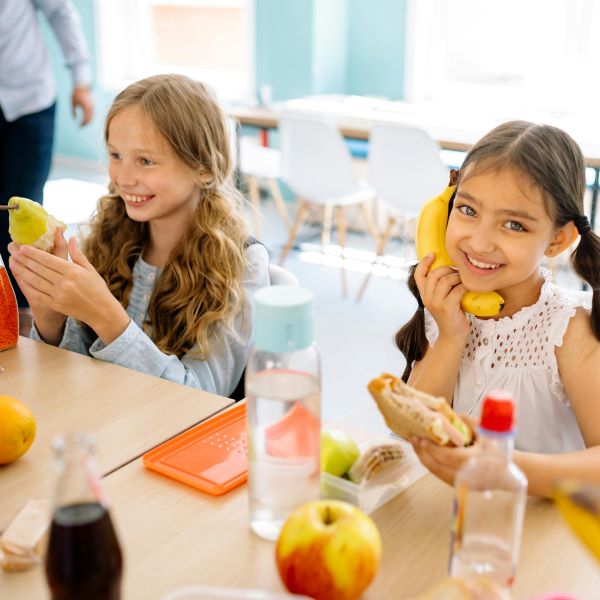Food for thought: Bringing European food education projects together

Did you know that there are a number of EU-funded projects working on food education? To connect these initiatives, the European Commission teamed up with FoodEducators (an initiative of the European Institute of Innovation and Technology - EIT) to host an online networking workshop, bringing together more than 10 food education projects from across Europe. These projects, funded through Erasmus+, Horizon Europe and the Interreg-BSR programme, are active in areas such as creating resources for teachers, connecting local farms with schools, and supporting sustainable school meals.
A recipe for success
Professor Paula Varela, senior researcher at the Nofima food research institute and professor at the Norwegian University of Life Sciences, opened the workshop with a presentation on food literacy in children. She emphasised the importance of understanding children as active participants in the food system, acknowledging individual differences, and creating a positive food environment.
The European Commission’s agriculture department shared insights on the EU School Scheme, an initiative that provides funding to EU member states to supply fresh fruit, vegetables, and milk to school children.
The projects presented at the meeting included:
- Foodeducators: The EIT Food programme offering science-based food education materials for young people on food & health, food & sustainability, food science & food systems and agrifood jobs & careers.
- FoodSafety4EU: A multi-stakeholder platform supporting the development of the future food safety system in Europe. The platform's food safety knowledge centre, includes policies, strategies and debates, practices and innovative solutions, scientific publications, and education and communication materials.
- FoodSHIFT Pathways: An Erasmus+ project providing innovative practices and digital tools to promote future-thinking on food system challenges in schools, including open learning scenarios and videos on food advertisement, food waste,land use, food choices, food production, and food culture.
- SESAM – Senses Science & the Magic of Food: This project brings research and science on food systems from universities to local communities and schools through tangible experiments, science shows, mock-ups, installations, and workshops.
- STRATKIT: The Sustainable Public Meal Toolkit offers advice on how to set up innovative strategies and activities for sustainable public procurement and catering services. More than fifty tools are available for stakeholders involved in the provision of public meals.
Key insights
In smaller group discussions, participants explored topics ranging from communication, content creation, funding strategies, to regional implementation. Some key insights emerged from the workshop:
- Adapting existing resources: The focus is shifting from developing new educational materials to adapting existing food-education resources to suit diverse audiences. This involves quality checks, translations, and the use of language and formats that are age-appropriate, culturally relevant, and easily accessible for educators.
- Centralised resource repository: Participants proposed a centralised 'library' to compile resources into formats that educators can easily navigate and use, helping to bridge projects and prevent the loss of valuable resources and expertise when individual projects conclude.
- Targeted and simple communication: Reaching children and young people at schools is often best achieved through their teachers and existing educational events, while social media campaigns can engage families more broadly. Key strategies include localising content for specific audiences, such as cooks and staff in canteens, and ensuring translation and simplified language for broader accessibility.
- Diverse community partnerships: Embracing diversity in partnerships is crucial, from sourcing produce directly from local producers for school canteens to organising career days that connect students with food system actors and community stakeholders, including researchers, farmers, and policymakers.
- Leveraging existing networks: Participants pointed towards the benefit of utilising existing school networks and events, such as the European Researchers’ Night, for outreach and engagement.
- Reciprocal partnerships: Sustaining partnerships requires mutual benefits, where stakeholders find meaningful value in their participation.
- Sustainable funding models: There is a clear need for strategic funding models that promote the sustainability and wider distribution of food education projects, diversifying funding sources, potentially including the private sector, while carefully considering ethical implications.
- Vulnerable communities: There is a need to further explore ways to engage and support vulnerable communities.
What’s next?
The work will be continued into 2025, exploring new opportunities for collaboration with EU-funded projects working on other themes connected to learning for sustainability.
Additional information
-
Education type:School Education
-
Target audience ISCED:Primary education (ISCED 1)Lower secondary education (ISCED 2)Upper secondary education (ISCED 3)Post-secondary non-tertiary education (ISCED 4)

